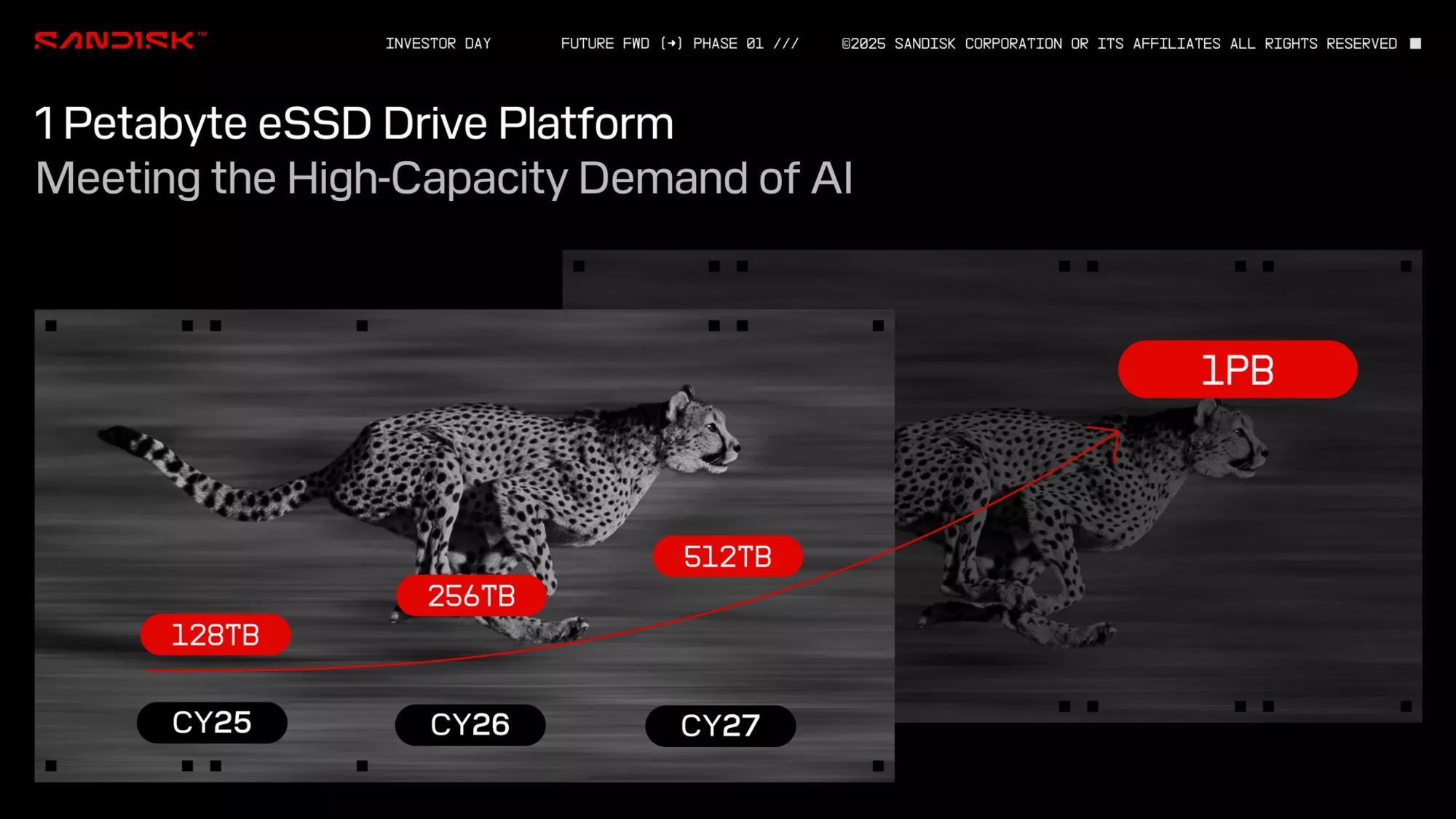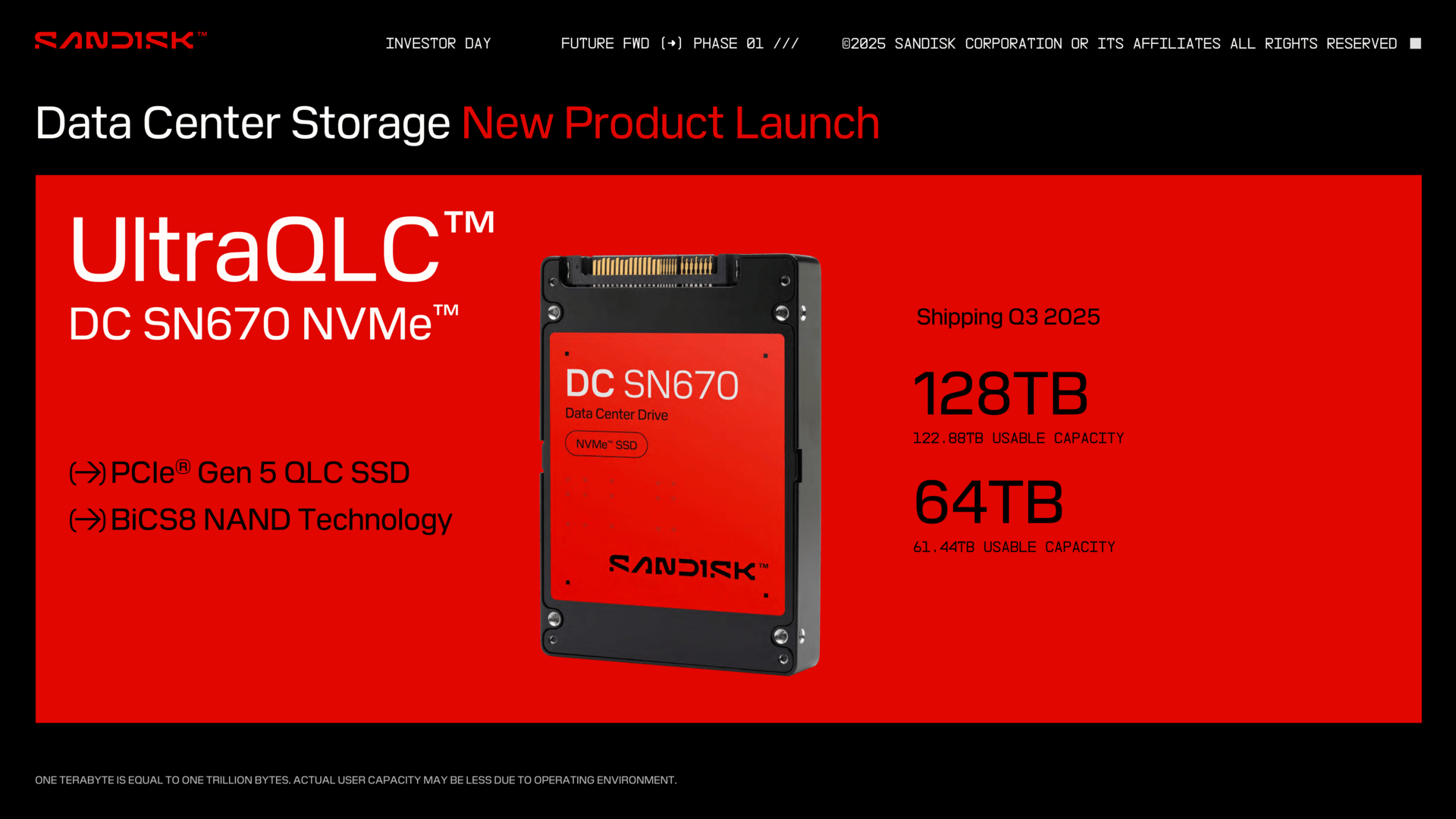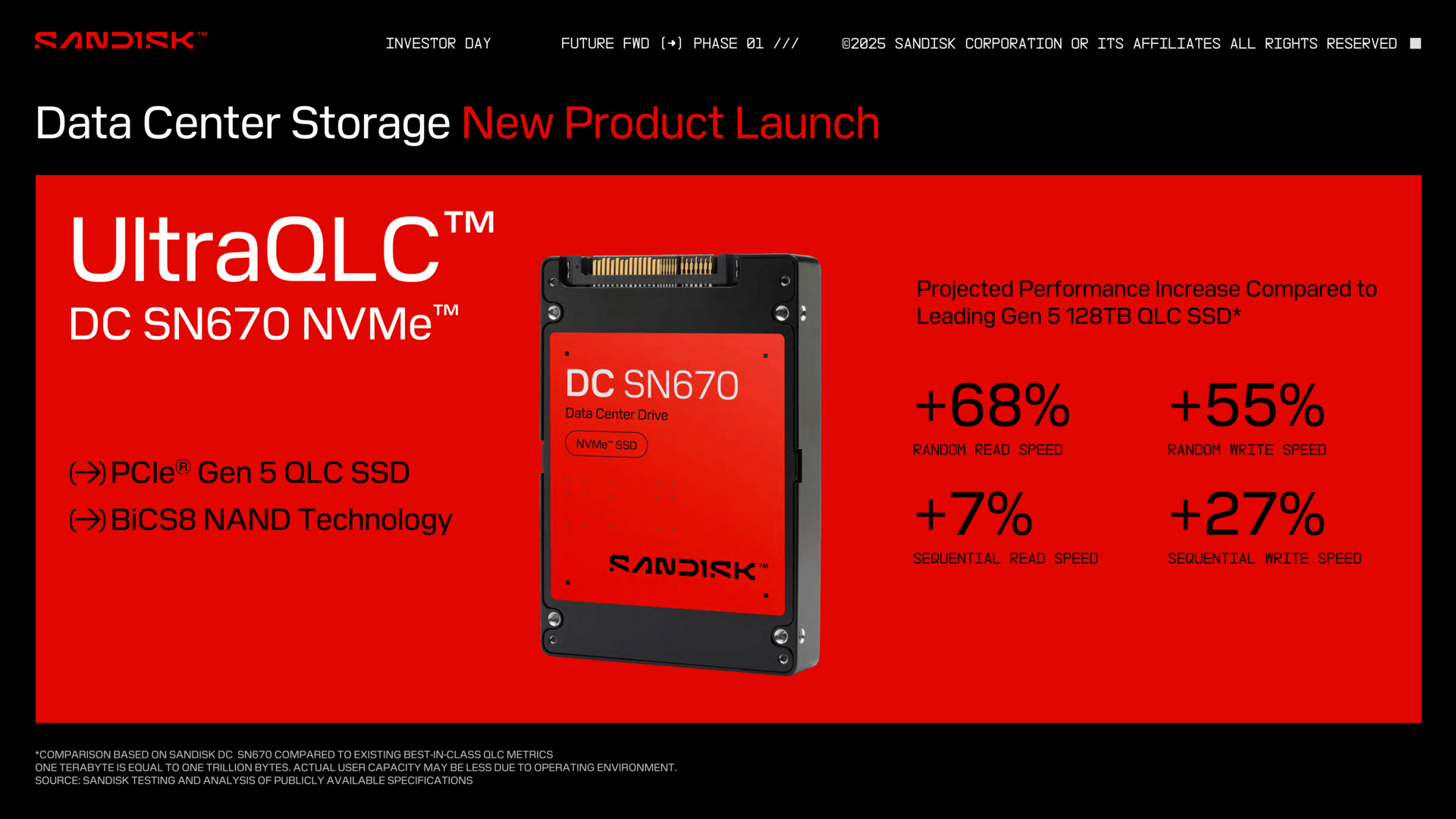In context: Sandisk is developing a new architecture for high-capacity SSDs called Stargate. Sandisk CEO David Goeckeler described it as a "dynamite" project that will significantly advance enterprise storage, especially when paired with the company's BiCS 8 QLC NAND flash. He added that it's arriving sooner rather than later.
After several years as a subsidiary of Western Digital, Sandisk split from the parent company earlier this year. Former WD head David Goeckeler, now Sandisk CEO, has some ambitious projects in the works.
Goeckeler discussed Stargate's potential during a recent investor Q&A session. ComputerBase notes that the project involves a new controller architecture and ASIC design, though technical details remain scarce. However, Sandisk's current product roadmap reveals Stargate's likely role.
The roadmap unveiled during Sandisk's investor day includes a 128TB solid-state drive set for release this year, followed by a 256TB model in 2026 and a 512TB version in 2027. The ultimate goal is to deliver a 1PB storage unit, targeting the high-capacity demands of artificial intelligence ventures and Big Tech, which continue shifting their business toward chatbots. Hard drive manufacturers see the same opportunity, with Seagate planning a 100TB drive for 2030.
Stargate will power a new enterprise storage platform called "Ultra QLC" (also known as the DC SN670), with 64TB and 128TB models shipping in the third quarter. Customers can expect significant performance gains. Random read speeds will improve by 68 percent, random writes by 55 percent, and sequential read and write speeds will increase by 7 and 27 percent, respectively.
The new drives use the PCIe Gen5 bus, though Stargate could also leverage the newer PCIe 6.0 standard. Thanks to QLC memory, each storage unit will feature a 2TB capacity per chip. Tome's Hardware notes Stargate will scale up to 64 dies per channel, with the 512TB drive utilizing 32 channels.
Typical client SSDs offer up to eight channels, so complex storage management technologies like Stargate won't appear in consumer SSDs anytime soon. The technology will target the enterprise sector, which will remain a key focus for Sandisk.


